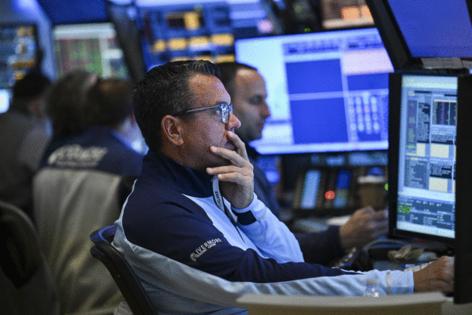Daniel Moss: Is America alone? Not yet, but it's trying
Published in Op Eds
This trade war is no ordinary crisis of the kind that buffeted capitalism periodically in the past few generations. It’s less a storm, Singapore’s deputy premier asserts, and more like “a tidal wave.” When leaders of a successful, trade-dependent nation talk this way, it demands attention.
And yet... for all its power, the analogy doesn’t quite capture the shift in mood since Donald Trump returned to the White House. There’s more to the sense of dislocation than mere tariffs — it’s the undergraduate way they were unveiled and then suspended. The independence of the Federal Reserve faces renewed threats. The bullishness with which U.S. markets were regarded has dissipated; the dollar has been hammered, stocks are down, recession fears are up. And government bonds, not usually prone to sharp fluctuations, have gyrated in troubling ways.
Finance ministers in Washington for International Monetary Fund and World Bank meetings must have felt like they landed on another planet. Treasury Secretary Scott Bessent pledged qualified support for the two institutions, which were born under U.S. auspices as World War II neared an end. That this was greeted with relief shows how much crockery has been broken.
The turmoil forces some uncomfortable questions, which, though not entirely new, tended to be considered something for another day. Suddenly, the primacy of the dollar, and even the relative safety of U.S. securities, are open to debate. The wisdom of relying on Washington’s guarantees, in both the economic and diplomatic fields, is getting fresh scrutiny.
“Nothing is long-run anymore,” Markus K. Brunnermeier, a nonresident senior fellow at the Peterson Institute for International Economics, told a symposium last week. “Everybody will just be more flexible.” Assets perceived to be safe now look shaky. To not have a Plan B, other than looking to the U.S. for salvation, as during the 2008 subprime meltdown and the outbreak of COVID-19, is to court poor outcomes.
The gathering’s somber tone seems an important marker for assessing Trump’s second term. In December, as investors were trying to get a handle on how it might differ from his first, Peterson and the Lee Kuan Yew School of Public Policy convened a conference in Singapore. One session posed what then seemed like a provocative question: What would a world without the U.S. look like? It felt a bit premature, and there were no reassuring conclusions. American power wasn’t going away.
If Washington’s credibility is diminished, it’s entirely on the president. He has deliberately taken an ax to a pre-requisite for influence: dependability. The disruption Trump has wrought is testimony to the sway America still has. But this demonstration of clout, deployed to cause harm to both ally and opponent, might contain the seeds of diminishment.
Discussions at last week’s event showed the slippage. Warwick McKibbin, a professor at the Australian National University who sat on the board of the Reserve Bank, floated how much additional protection investors might require to buy Treasuries. Would an extra yield of 100 basis points do the trick?
My attention was really grabbed when the Asian Monetary Fund got a mention. That was a concept I hadn’t heard about in years. The fund was an attempt in the late 1990s to develop a rescue reserve among the region’s governments. The idea was that they not be so dependent for emergency loans on the International Monetary Fund and its biggest shareholder, the U.S. Treasury. Japan was to play a big role and the plan had a number of boosters, including Malaysian leader Mahathir Mohamad. But without American support, the venture foundered.
Its struggles ultimately showed how hard it was to develop a meaningful architecture in the face of U.S. resistance. Hurdles would remain today, not least that the dollar, for all its flaws, has to be part of the arrangement. Even China doesn’t want a divorce. As long as the yuan isn’t traded freely, there will be considerable limits to just how much it will challenge the greenback, assuming Beijing even really wants that.
The world is still the dollar’s, and by implication America’s, to lose. It’s disconcerting that the alternatives are getting a hearing. America isn’t yet alone, though that’s not for want of trying. Singapore, with its huge container port and world class airport, is right to be very worried. In this, the city-state has plenty of company.
_____
This column reflects the personal views of the author and does not necessarily reflect the opinion of the editorial board or Bloomberg LP and its owners.
Daniel Moss is a Bloomberg Opinion columnist covering Asian economies. Previously, he was executive editor for economics at Bloomberg News.
_____
©2025 Bloomberg L.P. Visit bloomberg.com/opinion. Distributed by Tribune Content Agency, LLC.




























































Comments